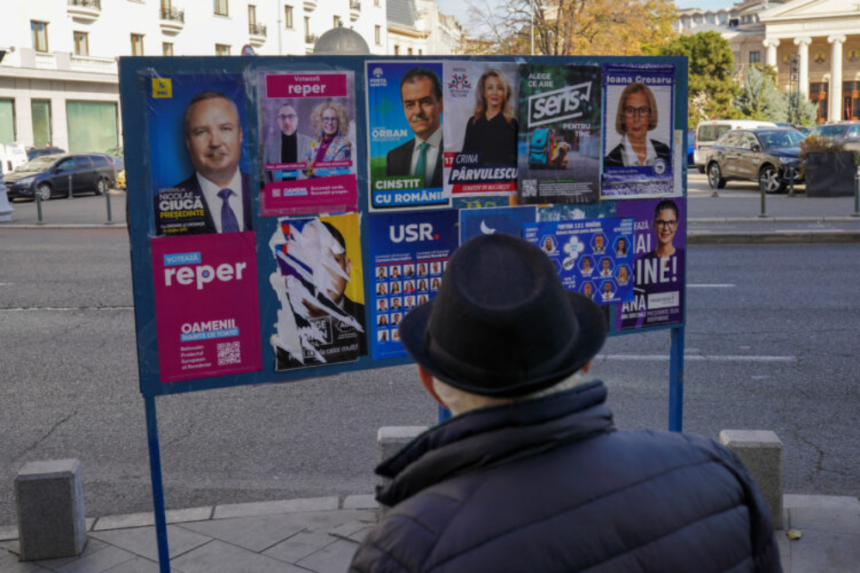The results of Romania’s presidential election have caught media outlets and public opinion researchers off guard. The race is expected to be decided in a runoff between the far-right candidate Călin Georgescu and social democrat Marcel Ciolacu. According to the Central Electoral Commission, Georgescu has secured around 22% of the vote, while Ciolacu has garnered about 20%. However, half of the votes from Romanians abroad have yet to be counted, with the final result expected later today.
Pro-Russian Candidate Surprises in Romania’s Presidential Race
The outcome has stunned many, as pre-election polls did not predict Georgescu’s success in advancing to the second round. Known for his strongly religious and nationalist views, Georgescu has faced criticism for his pro-Russian stance and anti-NATO rhetoric. In 2022, he was investigated for praising Holocaust perpetrators. Despite being largely ignored by traditional media and political opponents, Georgescu gained significant traction on TikTok, where his political campaign resonated with many voters.
Commentators in Bucharest have pointed out that both traditional media and established politicians share responsibility for failing to pay attention to Georgescu’s social media influence. Even exit polls on election night did not predict such a surprising result.
“No Longer on Our Knees” – Georgescu’s Election Message
During his press conference, streamed on Facebook, Georgescu claimed that the Romanian people had “awakened” and expressed a desire to “no longer be on our knees, under invasion, humiliated.” He attributed his success to economic insecurity and alluded to the ongoing Russian war in Ukraine, stating, “Tonight, the Romanian people shouted ‘peace’.”
Romania, located at the eastern edge of the European Union, has a population of around 19 million and is considered one of Europe’s poorest countries. It shares a border with Ukraine, which has been fighting off a Russian invasion for nearly three years.
If Georgescu wins in the second round on December 8, his victory could reshape Romania’s foreign policy, potentially shifting away from the EU and NATO alignment it has maintained.
Romania’s Presidential Powers and Foreign Policy
The president of Romania has significant authority over foreign and defense policy and controls the intelligence services. While the Romanian president’s powers are greater than those of the German president, they are still less than those of the French president.
A Key Runoff: Political Support in Romania’s Presidential Election
Georgescu’s rival in the second round, candidate George Simon, who failed to secure enough votes to remain in the race, announced his support for Georgescu. Simon is a member of the far-right AUR party, which advocates for Romanian nationalism. The third-place candidate, Elena Laskoni, from the conservative-liberal Reformist Party, won just under 19% of the vote but has yet to publicly endorse either of the remaining candidates.
This scenario in Romania is reminiscent of the 2000 presidential elections, where in the second round, social democrat Ion Iliescu faced off against far-right extremist Corneliu Vadim Tudor. In that election, democratic parties united to prevent an extremist from reaching the highest office, with significant support from European allies.







